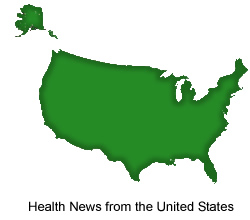
Date Published: 2 August 2013
New FDA definition of Gluten-Free for voluntary food labeling



The United States Food and Drug Administration (FDA) has published a new regulation defining the term "gluten-free" for voluntary food labeling.
This new rule will provide a uniform standard definition to help up to 3 million Americans who have celiac disease, an autoimmune digestive condition that can be effectively managed only by eating a gluten free diet.
" Adherence to a gluten-free diet is the key to treating celiac disease, which can be very disruptive to everyday life," said FDA Commissioner Margaret A. Hamburg, M.D.
" The FDA's new 'gluten-free' definition will help people with this condition make food choices with confidence and allow them to better manage their health."
This new United States federal definition standardizes the meaning of "gluten-free" across the food industry. It requires that, in order to use the term "gluten-free" on its label, a food must meet all of the requirements of the definition, including that the food must contain less than 20 parts per million of gluten.
The rule also requires foods with the claims "no gluten," "free of gluten," and "without gluten" to meet the definition for "gluten-free".
The FDA has recognized that many foods currently labeled as "gluten-free" may already meet the new federal definition already. Food manufacturers will have one year after the rule is published during which to bring their labels into compliance with the new requirements.
" We encourage the food industry to come into compliance with the new definition as soon as possible and help us make it as easy as possible for people with celiac disease to identify foods that meet the federal definition of 'gluten-free' " said Michael R. Taylor, the FDA's deputy commissioner for foods and veterinary medicine.
The term "gluten" refers to proteins that occur naturally in wheat, rye, barley and cross-bred hybrids of these grains. In people with celiac disease, foods that contain gluten trigger production of antibodies that attack and damage the lining of the small intestine. Such damage limits the ability of celiac disease patients to absorb nutrients and puts them at risk of other very serious health problems, including nutritional deficiencies, osteoporosis, growth retardation, infertility, miscarriages, short stature, and intestinal cancers.
The FDA issued the new regulation thanks to the Food Allergen Labeling and Consumer Protection Act (FALCPA), which directed FDA to set guidelines for the use of the term "gluten-free" to help people with celiac disease maintain a gluten-free diet. The regulation was published in the Federal Register on 2 Aug 2013. Sources of further information are listed on the FDA's website.
Source: The U.S. Food and Drug Administration
http://www.fda.gov - ![]()








